Herbal teas have been loved for ages for their calming vibes and natural health perks. But, while many folks sip on these brews to relax and feel good, not many think about how they might mix with medications.
It’s really important to know that some herbal teas can change how your body handles certain drugs, which might cause unexpected side effects or make the meds less effective.
Getting the hang of herbal teas and medications isn’t just a casual thing. By knowing about these interactions, you can make safer choices and steer clear of any risky combos.
This article takes a closer look at the specific herbal teas that could mess with your medications, offering tips and advice for balancing natural remedies with prescribed treatments.
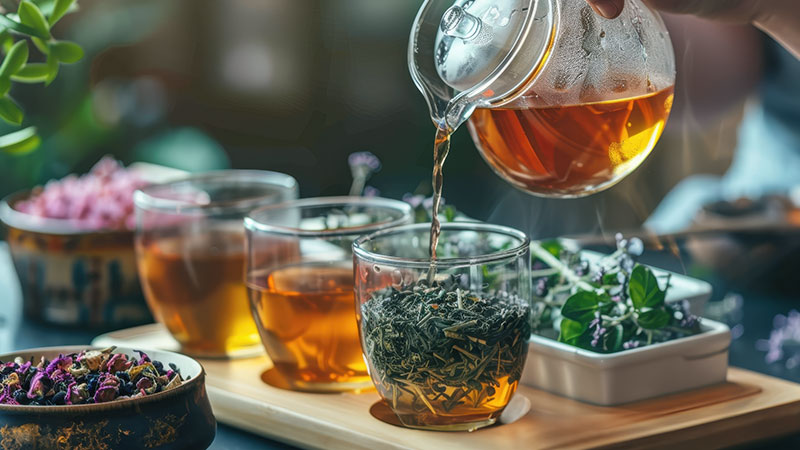
What Does Research Say About Herbal Tea?
Studies show that various herbal teas can interact with medications, impacting their effectiveness.
For instance, chamomile tea might enhance the effects of blood thinners like warfarin. Drinking this tea while on such medications could increase the risk of bleeding.
Researchers also highlighted that green tea can interfere with beta-blockers used for managing high blood pressure. This tea contains compounds that may reduce the medication’s efficacy, leading to suboptimal control of blood pressure.
Several studies found that St. John’s wort tea can affect the metabolism of many drugs, including antidepressants, birth control pills, and some heart medications. These interactions may result in reduced drug levels and diminished therapeutic effects.
Peppermint tea, often consumed to soothe digestion, can hold risks for those taking antacids or medications for acid reflux. Research suggests it may increase stomach acid production, potentially worsening symptoms.
Overall, research underscores the importance of discussing herbal tea consumption with healthcare providers, especially for individuals on regular medication.
7 Herbal Teas That Can Affect Your Medications
Certain herbal teas can interact with medications, potentially altering their effectiveness or causing adverse effects. Here are some herbal teas that may affect medications:
1. Ginkgo Biloba Tea
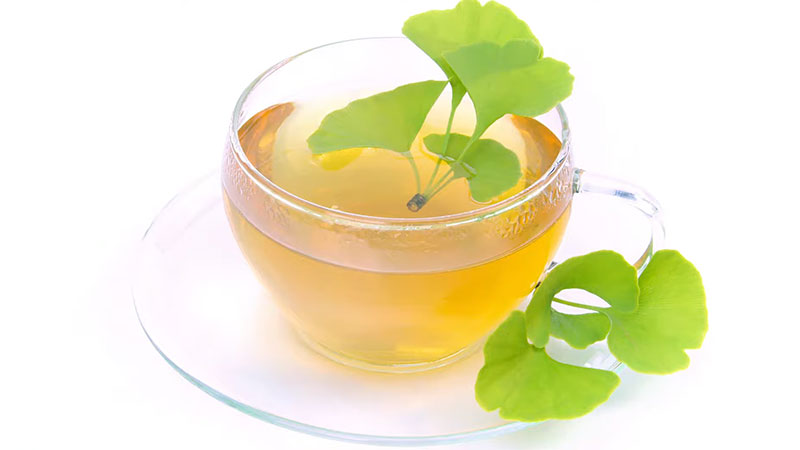
Ginkgo Biloba tea is popular for enhancing cognitive functions like memory and focus. However, it’s crucial to be aware of its interactions with medications.
It can affect blood clotting, posing risks for those on blood thinners like warfarin or aspirin. It may also reduce the effectiveness of anticonvulsant medications like phenytoin or carbamazepine, increasing seizure risk.
For those on antiplatelet drugs, the tea can enhance their effects and lead to excessive bleeding. Ginkgo Biloba can interact with SSRIs, potentially causing serotonin syndrome, and may affect blood sugar levels in people taking diabetes medications.
It’s advisable to consult a healthcare provider before consuming Ginkgo Biloba tea if you are on any medication.
2. St. John’s Wort Tea
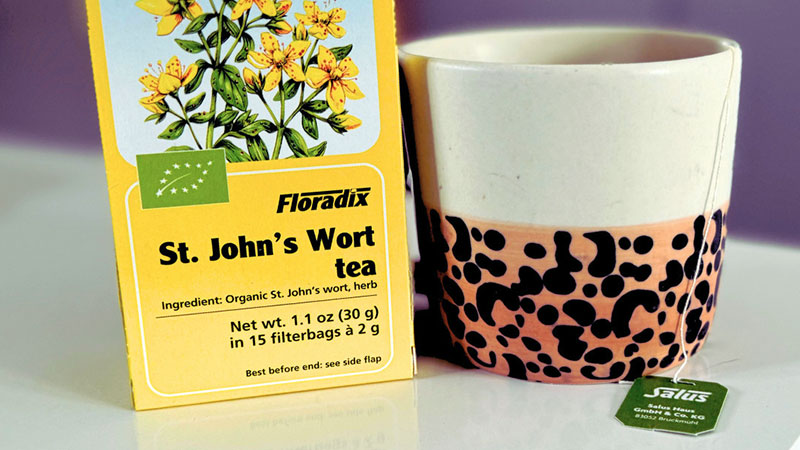
St. John’s Wort tea affects the metabolism of various drugs by enhancing liver enzyme activity, leading to faster breakdown and reduced therapeutic effects of medications like antidepressants and birth control pills.
This may result in less effective medication and potential risks such as unintended pregnancies. It also negatively interacts with anticoagulants and heart failure treatments like digoxin.
Thus, it is crucial for doctors and patients to discuss the use of St. John’s Wort tea to ensure safe and effective medication management.
3. Chamomile Tea
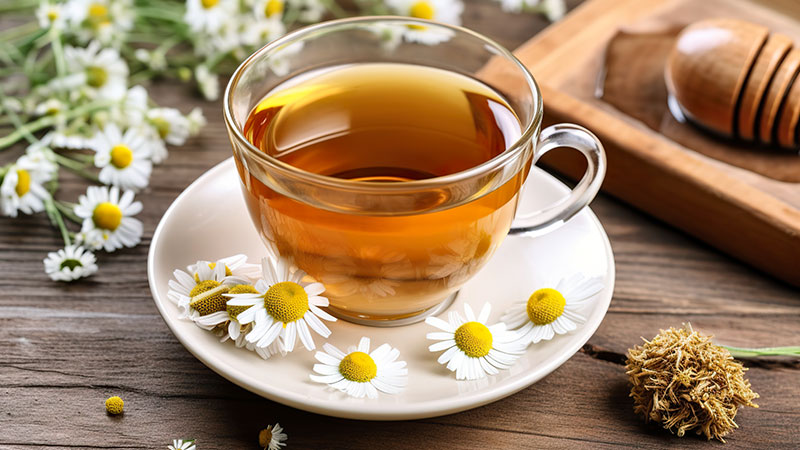
Chamomile tea promotes relaxation and aids sleep but can interact with certain medications, enhancing blood thinners like warfarin and potentially causing bleeding, or reducing the effectiveness of cyclosporine, a drug for preventing organ rejection.
It also increases the risk of bleeding or bruising when combined with NSAIDs like ibuprofen. People allergic to plants in the daisy family should avoid it to prevent allergic reactions.
Always consult a healthcare provider before adding chamomile tea to your routine to manage potential interactions.
4. Ginger Tea
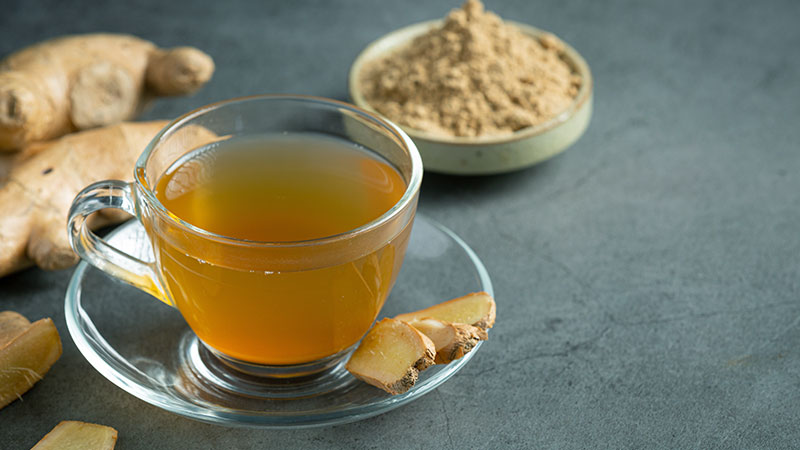
Ginger tea offers anti-inflammatory and digestive benefits but may interact with various medications. It can increase bleeding risk when taken with anticoagulants like warfarin or blood-thinners like aspirin and clopidogrel.
For people using diabetes medications, ginger’s blood sugar-lowering effect could lead to hypoglycemia. High blood pressure patients on beta-blockers may experience excessively low blood pressure if consuming ginger tea.
It can also reduce the effectiveness of gastrointestinal medications like proton pump inhibitors or H2 blockers and interfere with immunosuppressive drugs used for autoimmune diseases.
Consulting healthcare providers before incorporating ginger tea is essential to avoid compromising medication efficacy or safety.
5. Valerian Root Tea
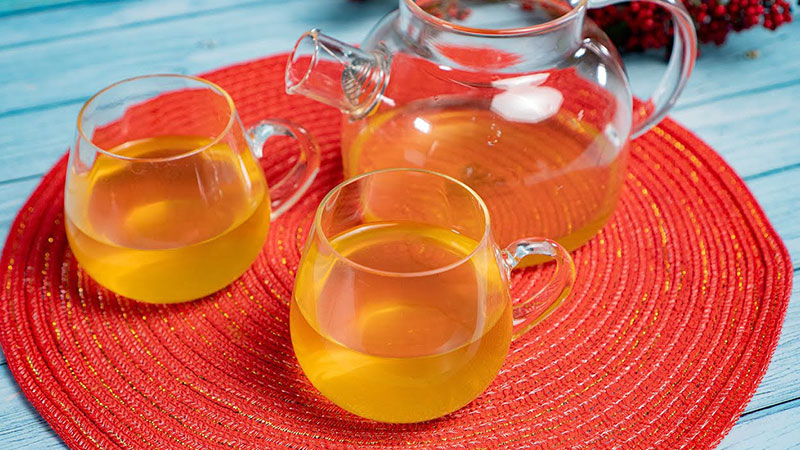
Valerian root tea is commonly used for relaxation and better sleep but can interact with various medications, amplifying their effects and potentially causing excessive drowsiness or sedation.
It may enhance the calming effects of anti-anxiety drugs, increase dizziness or impaired coordination with antidepressants, and intensify sedation when combined with sleep aids like zolpidem or eszopiclone.
Valerian root can also magnify the effects of muscle relaxants and antihistamines. Due to these potential interactions, consulting a healthcare provider before using valerian root tea is crucial.
6. Goldenseal Tea
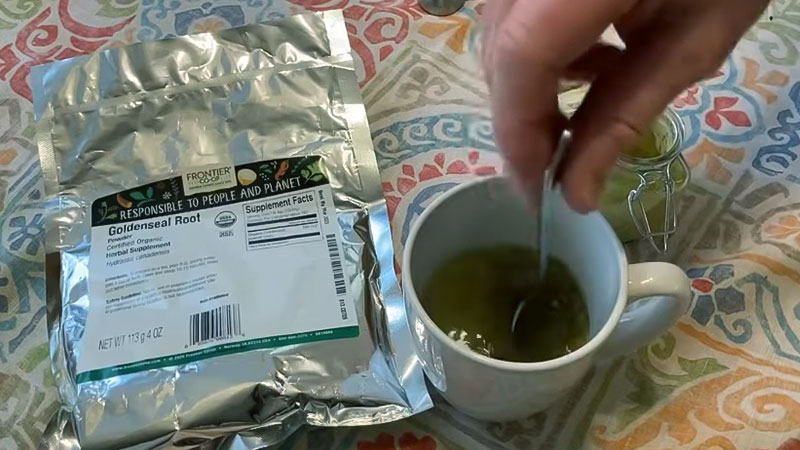
Goldenseal tea, made from the roots of the goldenseal plant, is valued for its antimicrobial benefits and is commonly used to treat infections.
However, it can interfere with various drugs by inhibiting enzymes that metabolize them, potentially increasing drug levels in the body.
This is particularly risky for individuals taking blood thinners, certain antidepressants, cardiovascular medications, gastrointestinal drugs, and diabetes medications.
Due to these interactions, consulting healthcare providers before using goldenseal tea is essential to ensure it does not compromise the effectiveness of important medications.
7. Kava Tea
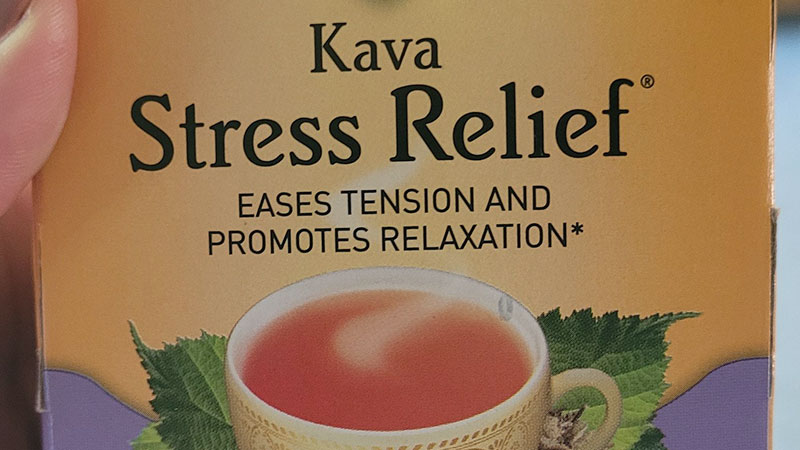
Kava tea, known for its calming effects, interacts with several medications and can amplify the sedative effects of antidepressants and anti-anxiety drugs, leading to excessive drowsiness and impaired cognitive function.
It poses a risk to liver health, especially when combined with liver-affecting medications like acetaminophen.
Kava may reduce the effectiveness of antipsychotic drugs and increase the side effects of medications metabolized by the liver’s cytochrome P450 system, such as warfarin and statins. Consulting a healthcare provider is crucial for the safe consumption of kava tea.
How You Can Reduce The Risks of Herbal Tea?
Consumers can take several steps to safely enjoy herbal teas while mitigating potential medication interactions.
Buy From Reputable Brands
Selecting teas from well-known and reliable brands helps safeguard against contaminants and impurities.
Trusted brands usually follow stringent quality control measures and third-party testing. Study product labels for certifications and ingredient transparency. Examples include USDA Organic or NSF International certifications.
Check Where the Product Was Sourced
The origin of herbal tea ingredients plays a crucial role in its safety and efficacy. Herbs grown in regions with strict agricultural regulations are less likely to contain harmful pesticides or heavy metals. Ensure the product provides clear information about its sourcing, particularly for teas like chamomile or kava.
Think Belladonna, Not Tomatoes
Some herbs possess potent bioactive compounds that can have significant effects on medications. Belladonna, though not commonly used in teas, serves as a stark reminder of how some plants can be highly toxic.
Approach herbal teas with the same caution you’d use for potent herbal supplements rather than assuming they are as safe as common foods like tomatoes.
Keep Your Physician Informed
It’s imperative to discuss any herbal tea consumption with a healthcare provider. They can offer guidance based on your specific medications and health conditions.
This dialogue helps manage potential risks, especially for teas like goldenseal or St. John’s Wort, which can significantly alter drug metabolism.
Be Cautious of Herbal Dietary Supplements
Not all herbal products undergo the same rigorous testing as pharmaceuticals. Herbal dietary supplements can include concentrated doses of bioactive compounds found in tea form.
Exercise caution with these products, as they may amplify interactions and side effects. Validate claims through reputable sources and consult healthcare professionals before incorporating them into your diet.
Frequently Asked Questions
How does green tea affect medications?
Green tea can interfere with beta-blockers used for managing high blood pressure, potentially reducing their effectiveness. If you’re taking beta-blockers, consult your doctor before consuming green tea regularly.
Are there any potential interactions with St. John’s Wort tea?
St. John’s Wort tea can affect the metabolism of various drugs, including antidepressants and birth control pills, reducing their therapeutic effects. It’s crucial to discuss its usage with your healthcare provider to avoid complications.
Is it safe to drink peppermint tea with antacids?
Peppermint tea can increase stomach acid production, which may pose risks if you’re taking antacids or medications for acid reflux. Consult your doctor for personalized advice if you consume peppermint tea.
What are the risks of consuming Ginkgo Biloba tea?
Ginkgo Biloba tea is known for cognitive benefits but can interact with blood thinners and anticonvulsants, increase bleeding risk, and affect seizure control. Always consult your healthcare provider before consuming it.
What should I know about goldenseal tea interactions?
Goldenseal tea can significantly interact with medications by inhibiting drug metabolism, affecting the effectiveness of antidepressants and cardiovascular medications. Always inform your healthcare provider before consuming goldenseal tea.
Conclusion
Understanding the interactions between herbal teas and medications is crucial for maintaining health and safety. While herbal teas offer numerous benefits, they can also pose significant risks when combined with certain drugs.
It’s essential to treat these teas with the same caution as other supplements and keep healthcare providers informed about their use.
By purchasing from reputable brands and verifying ingredient sources, individuals can enjoy the benefits of herbal teas while minimizing potential adverse effects.
Always approach herbal teas mindfully, especially when managing existing health conditions or medications.
